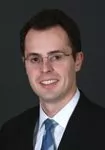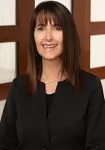A Wide Range of Practices Are Under Increased Scrutiny
The government is taking aggressive action after years of warning nursing homes and hospices about requesting or providing illegal compensation to influence the nursing home's patient referrals, in violation of the federal anti-kickback statute (AKS) and the federal False Claims Act (FCA).1 The government is using the broad reach of these laws to identify, prosecute and penalize hospices and nursing homes based upon a wide range of practices that are viewed as providing improper incentives to nursing homes. These practices have included:
- A hospice providing staff at its own expense to the nursing home to perform duties that otherwise would be performed by the nursing home staff.2
- Hospices providing services merely at the request of the nursing home instead of according to the medical needs of the patient.3 For example, providing a Certified Nursing Assistant to the nursing home several days per week solely for the convenience of the nursing home staff, furnishing continuous care to dying patients in the nursing home who do not exhibit acute symptoms that would justify this higher level of care or supplying specialty durable medical equipment (DME) to patients, even though the full extent of such services or equipment is not medically necessary.
- Nursing homes requesting and hospices providing services that are not considered hospice services, such as providing around-the-clock, nonskilled companionship-type services.
- A hospice offering or providing free goods or services to nursing home staff, such as gift cards.4
Consequences: Monetary Penalties, Prison and More
The potential consequences of violating the AKS or FCA are immediate, severe and could threaten the continued viability of many nursing homes and hospices. For example, even before an AKS or FCA complaint is filed, the government can suspend Medicare payments to nursing homes and hospices if there is a "credible allegation of fraud," such as an alleged AKS or FCA violation.5 In addition, both nursing homes and hospices that engage in practices that violate the AKS and FCA can be prosecuted and given severe penalties, including:
- A fine of up to $25,000, plus
- Imprisonment for up to 5 years, plus
- Fines of up to $11,000 per claim, plus
- 3 times the amount of damages sustained by the government, plus
- Nonpayment for services, plus
- Exclusion from federal health care programs.
Moreover, providing free services to nursing home residents may violate the federal prohibition against giving beneficiary inducements, which would bring additional fines of up to $10,000 per claim. This type of allegation has already been used by the government to secure a $1 million settlement in a recent FCA case.6
The Risk Is Real: More Contractors and More Money Mean A Higher Risk of Scrutiny
With surveyors and a myriad of other government contractors such as ZPICs scrutinizing the nursing home/hospice relationship, the risk of governmental prosecution is higher than ever. In addition, whistleblowers, patients, and patients' families all are incentivized to report bad conduct that could lead to serious consequences for nursing homes and hospices.
Nursing homes in particular are vulnerable to increased scrutiny. Under their new regulatory requirements, nursing homes must ensure that the services they provide to resident hospice patients are consistent with the level of care that would have been provided before hospice care was elected.7 Moreover, nursing homes are surveyed regularly, and the survey will now likely include a review of residents who are receiving hospice care. With the government budgeting $2 billion for its health care fraud and abuse program in 2015—nearly $700 million more than spent in 20148—the risk of scrutiny will only increase. This is particularly evident due to the significant recoveries that the government already has realized on its fraud detection investment. Even before this infusion of prosecutorial resources, the amount of money recovered has been substantial, and the rate of health care fraud prosecutions has risen dramatically over the past few years:
- $4.3 billion recovered in health care fraud in 2013 - third straight year of over $4 billion collected in health care fraud.9
- 522 new health care fraud cases initiated in 2013, up from 313 in 2009.10
- 66% increase in new health care fraud cases since 2009.11
- The number of whistleblower cases filed in 2013 was nearly double the number as were filed in 2009.12
Avoid Becoming a Statistic: Do Not Request and Do Not Provide Medically Unnecessary or Non-Hospice Services
Nursing homes and hospices can reduce their risk of becoming an AKS or FCA statistic by avoiding the practices described in this article. Both nursing homes and hospices should evaluate their mutual relationships in light of the following questions.
- Are the items and services requested by the nursing home or
provided by the hospice actually needed by patients, commercially
reasonable, and necessary to achieve a legitimate business purpose
other than to generate of referrals or business?
- The answer should be "yes."
- Do the services requested by the nursing home or provided by
the hospice comprise "hospice services" as that term is
defined by federal law?
- The answer should be "yes."
- Does the nursing home (or its affiliates or representatives)
directly or indirectly receive anything of value from the hospice
that is not related to or based upon the contracted provision of
hospice services?
- The answer should be "no."
- Is an arrangement between a nursing home and a hospice intended
to induce or reward referrals?
- The answer should be "no."
If a nursing home or hospice cannot answer each of these questions as cited above, then the particular relationship or arrangement should be evaluated to determine whether it could lead to the kind of scrutiny and potential consequences discussed in this article.
Nursing Home-Hospice Relationships Are Here to Stay: Center Your Partnership on Patient Need
CMS has made clear that end-of-life care is critically important in the nursing home setting, and a good hospice partner should play an important role in quality end-of-life care while avoiding the serious risks discussed above. To do so, the relationship between the hospice and the nursing home must be defined by the medical needs of the patient and each provider's responsibilities for care.
Footnotes
1 Office of the Inspector General ("OIG"), Special Fraud Alert, Fraud and Abuse in Nursing Home Relationships with Hospices, March 1998 ("OIG Special Fraud Alert"). A violation of the AKS is a per se violation of the FCA. 42 U.S.C. § 1320a-7b(g).
2 OIG Special Fraud Alert. See also OIG, OIG Supplemental Compliance Program Guidance for Nursing Facilities, 73 Fed. Reg. 56832, 56845 (Sept. 30, 2008) and OIG, Compliance Program Guidance for Hospices, 54031, 54040 (Oct. 5, 1999).
3 See Relator's First Amended Complaint, U.S. ex rel. Numbers v. Hernando-Pasco Hospice, No. 8:10-cv-00912-T- 27-27EAJ (E.D. Fla. Feb. 20, 2012).
4 See Relator's Amended Complaint, U.S. ex rel. Wall v. Vista Hospice Care, Inc., No. 3-07-CV-0604-M (N. D. Tex. Sept. 29, 2009). See also, U.S. ex rel. Wall v. VistaCare, Inc., Civil Action No. 3:07-CV-604-M (filed March 9, 2011).
5 See 42 C.F.R. § 405.371(a)(2).
6 See note 3, supra.
7 See 42 C.F.R. § 483.75(t)(2)(ii)(G). See also, 42 C.F.R. § 418.112(c)(4)
8 U.S. Dept. of Health and Human Services, Fiscal Year 2015 Budget in Brief, available at http://www.hhs.gov/budget/fy2015/fy-2015-budget-in-brief.pdf.
9 The Department of Health and Human Services and The Department of Justice Health Care Fraud and Abuse Control Program Annual Reports for Fiscal Years 2011-2013, available at http://oig.hhs.gov/reports-andpublications/ hcfac/.
10 U.S. Dept. of Justice, Fraud Statistics - Health and Human Services, October 1, 1987 - September 30, 2013, available at http://www.justice.gov/civil/docs_forms/C-FRAUDS_FCA_Statistics.pdf.
11 Id.
12 Id.
The content of this article is intended to provide a general guide to the subject matter. Specialist advice should be sought about your specific circumstances.










